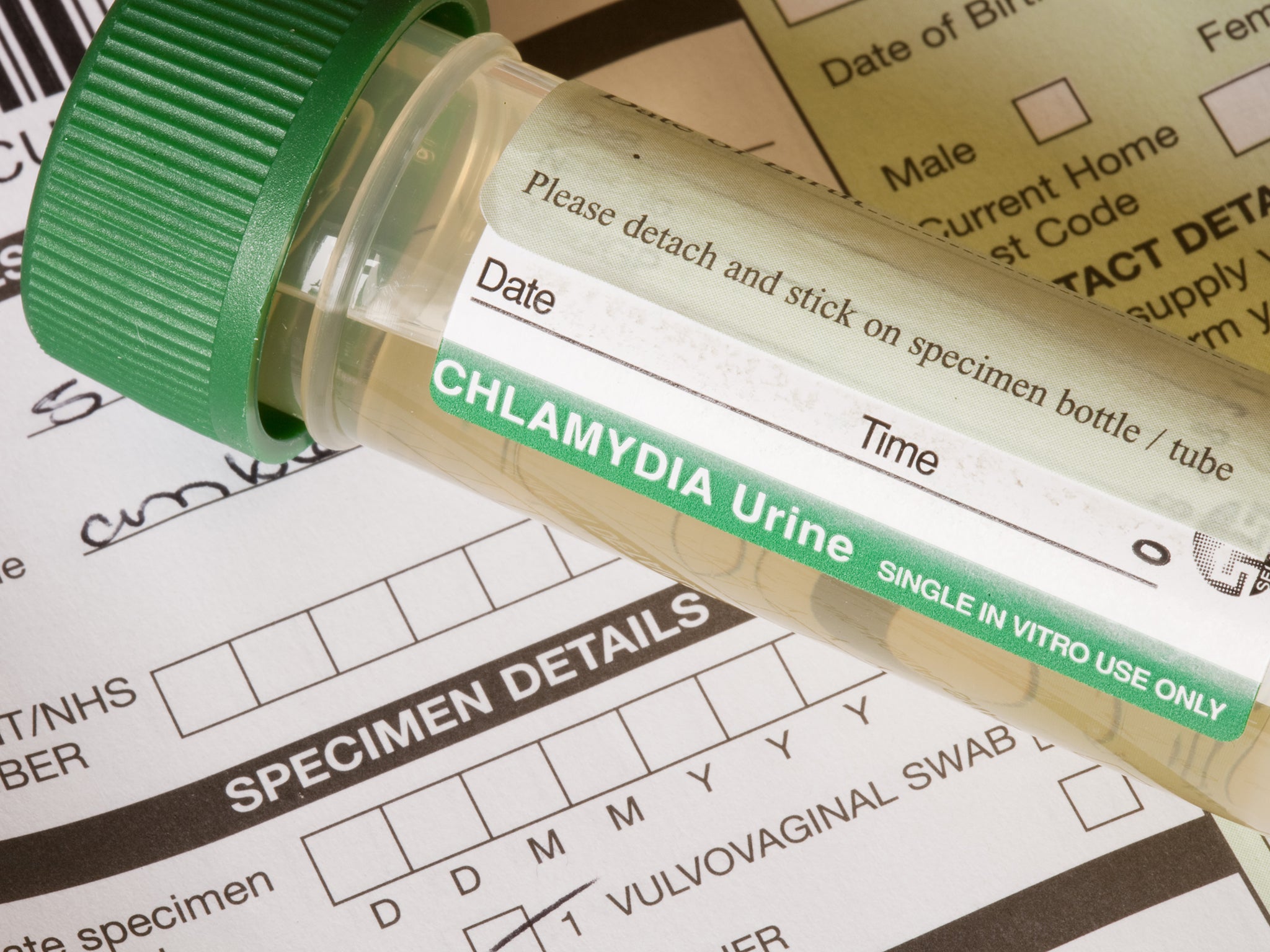Chlamydia: US researchers claim to have developed vaccine against the disease
Chlamydia is extremely common, with an estimated 100 million people being infected every year

Researchers in the United States say they have developed a vaccine that can protect against chlamydia – the most common sexually transmitted infection in the world.
There have been no trials of a chlamydia vaccine since the 1960s, when a failed attempt led to some people actually becoming more vulnerable to infection.
However, experts at Harvard Medical School believe they have now worked out why the old vaccine did not work and overcome the problem, to produce a vaccine that, in mice, could generate the immune cells needed to protect against infection.
Chlamydia is extremely common. There were 208,755 new infections in England in 2013, and around the world an estimated 100 million are infected each year.
In around half of men, and 70 to 80 per cent of women who get it, there will be no symptoms. However, in some it can cause pain and if left untreated can lead to infertility.
It is a bigger problem in low income countries, in areas with poor sanitation and infrastructure, where the bacteria which causes the infection, chlamydia trachomatis, is spread through personal contact and even by flies, infecting people via the eyes, and causing a condition called trachoma – the biggest preventable cause of blindness in the world.
The new vaccine has so far only worked in mice, but the researchers behind it said their results were “very surprising and exciting”, and that the vaccine worked against a number of different chlamydia strains.
It is thought that previous vaccines did not work because they were delivered by injection into the skin or muscles. This kind of vaccination often does not spread immunity to the mucous membranes – such as around the genitalia and the eyes – that are inflamed by a chlamydia infection.
The Harvard vaccine is administered at a ‘mucosal site’, such as in the nose or under the tongue, using nanoparticles that are small enough to travel to lymph nodes, producing an immune response that can be spread to other parts of the body.
“This really is a very surprising and exciting observation,” said Ulrich von Andrian, professor of immunopathology at Harvard Medical School and senior author of the paper. “We used this vaccine to try to really understand an immune response that was previously not that well worked out. Now our vaccine gives very good protection, even against different chlamydia strains.”
The researchers behind the vaccine said they were actively seeking to develop it for use in people, and a biotech company, Selecta, founded by members of the team, have already licensed the intellectual property for their new approach. Their findings are published in the journal Science.
A leading expert in the UK said the vaccine was “exciting” but still at an early stage.
“Clearly more testing would be needed to assess its effectiveness in humans, and to address any potential adverse effects,” said Dr Kim Watson, associate professor in structural biology at the University of Reading. “While this is an exciting step, bringing us closer to a human vaccine, it is early in the development stage. However, there is no doubt this work represents an important step forward in finding an effective vaccine against chlamydia trachomatis and other complex pathogens.”
Subscribe to Independent Premium to bookmark this article
Want to bookmark your favourite articles and stories to read or reference later? Start your Independent Premium subscription today.

Join our commenting forum
Join thought-provoking conversations, follow other Independent readers and see their replies